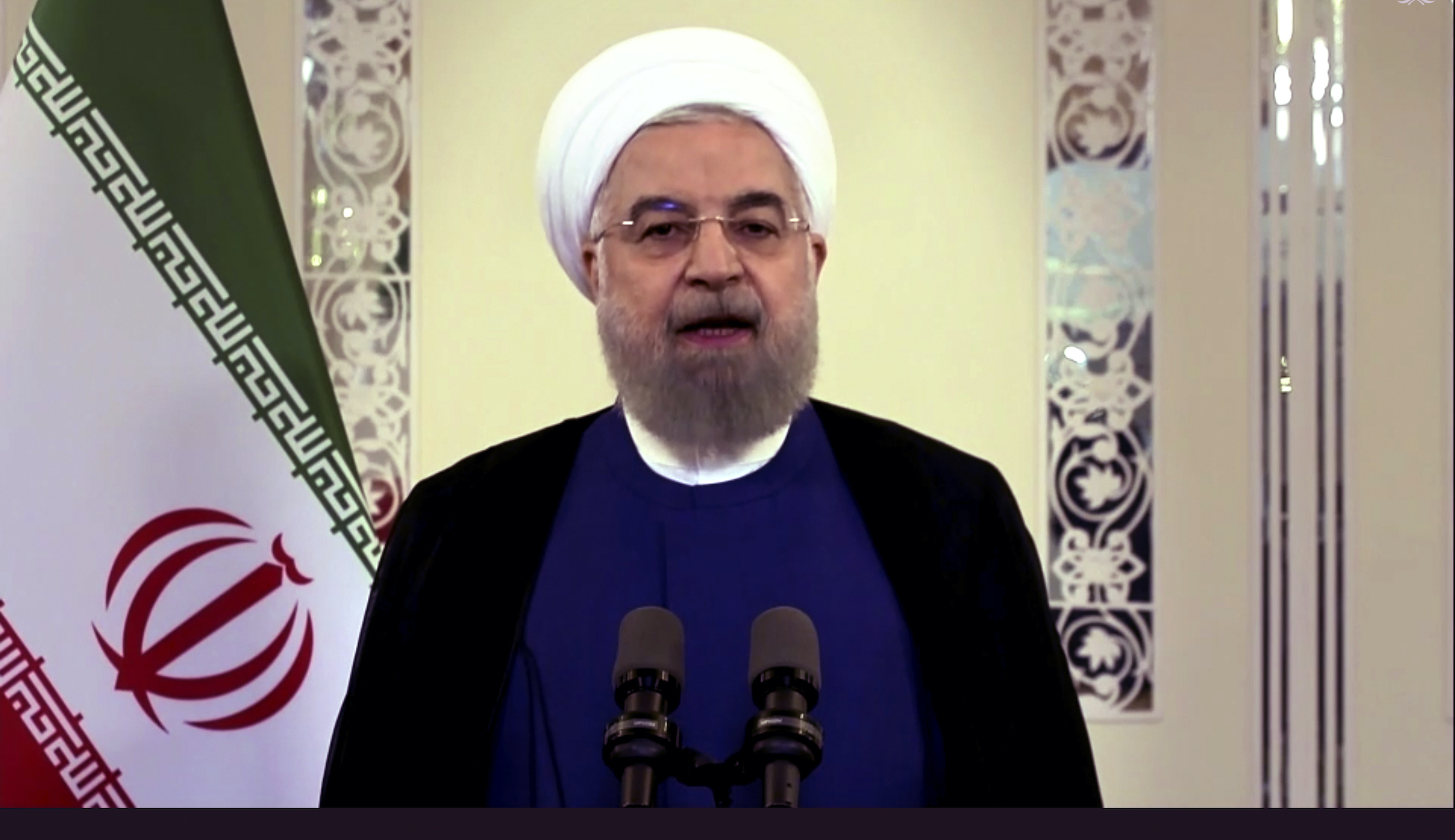Iranian President Hassan Rouhani used his speech before the United Nations General Assembly to attack the United States, comparing the death of George Floyd to U.S. foreign policy.
In Rouhani’s Tuesday speech, he used Floyd’s death as a cudgel against the U.S. Floyd, a black man, died in police custody on Memorial Day. Footage that was released showing a white officer kneeling on Floyd’s neck as he begged for air sparked nationwide protests and a wider conversation about systemic racism in law enforcement and society in general.
“The footage broadcast to the world concerning the treatment of an African American by the U.S. police is reminiscent of our own experience. We instantly recognize the feet kneeling on the neck as the feet of arrogance on the neck of independent nations,” Rouhani told the U.N. General Assembly in a pre-recorded address. “For decades, the valiant Iranian nation has paid a similar high price for its quest for freedom and liberation from domination and despotism.”
Rouhani said that Iran has “not only resisted” U.S. pressure, including crippling sanctions, but has “flourished and advanced” in spite of it. In the speech, he claimed that Iran, which funds violent militant groups across the Middle East, is an “axis of peace and stability.”

The U.S. considers Iran to be the “world’s foremost state sponsor of terrorism.” Iran has consistently funneled money to terrorist groups such as Hezbollah and Shiite militia groups in Iraq and Yemen.
Rouhani also blasted the U.S. for its sanctions against his country, which have been imposed as part of a “maximum pressure” campaign by the Trump administration designed to squeeze the regime into submission. Rouhani called them “the harshest sanctions in history” and said that they had been imposed in “blatant and gross violation of the charter of the United Nations.”
The Iranian leader thanked the U.N. Security Council, specifically singling out Russia and China, for recently expressing opposition to “snapback” sanctions against the country, which the U.S. said went into effect over the weekend.
The U.S. invoked the snapback mechanism after the Security Council failed to extend an arms embargo against the country that is scheduled to expire in October. The snapback mechanism is part of the 2015 Iran nuclear deal, which states that nations within the treaty can retrigger international sanctions against Iran if it substantially violates the terms of the deal. President Trump pulled the U.S. from the nuclear deal in 2018, and Russia and China have argued that the mechanism cannot be invoked because of the withdrawal.
The International Atomic Energy Agency issued a report earlier this year that concluded that Iran is continuing to violate all aspects of the nuclear deal restrictions, including the enrichment and stockpile of uranium.

